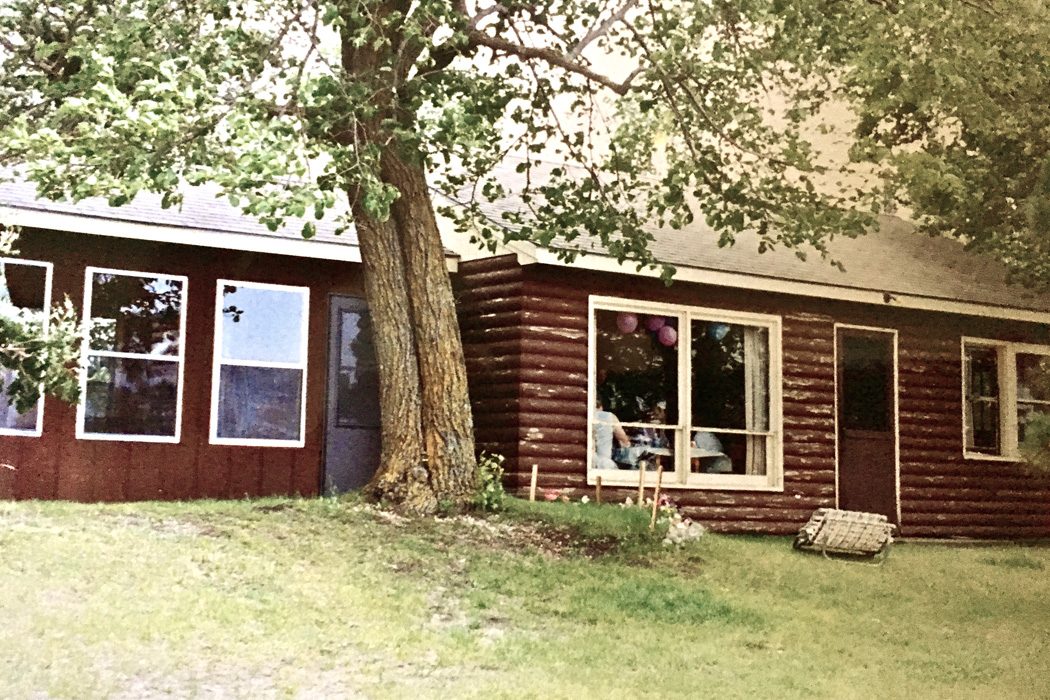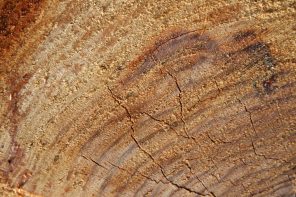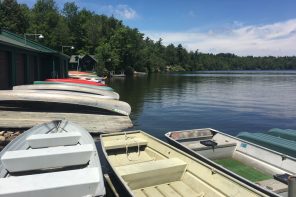“And in my mind I still need a place to go.”
Neil Young
I walked down a dirt road near my home today, a road surrounded on both sides by majestic oaks and firs. Just on the other side of the trees are houses, and beyond them, on one side, a lake. My house is near, but not on, the lake. For me, there is only one lake in this state of ten thousand; located 180 miles to the north, “my lake” is a place of summer.
It is not summer today and on my walk, an oppressive silence crowded me. I didn’t even hear the merry call and response of the chickadees. Early this morning too, daylight savings arrived—that unfortunate time when days pass into night right in the middle of what would be a languid summer’s afternoon, if only it were July. Even though one can still see the green grass of summer, a winter sky hovers in the distance.
Just as I directed my feet toward home, futilely turning my collar up against a growing melancholy, my nose detected the distant scent of burning leaves. With a deep inhale, I found my way back to the cabin built by my Grandpa Roy Olson in 1957, on the shores of Pickerel Lake in Ottertail County, Minnesota: my lake. I once gathered pussy willows there while the grownups raked leaves not gotten to the previous fall and the leaves, no doubt, were burned in small, safe piles throughout the yard.
The cabin Grandpa Roy built is essentially one room, for while two back bedrooms are segmented off from the rest of the cabin by wood-paneled walls, the rooms were not given individual ceilings. Today, almost 60 years later, very little has changed. From these rooms, one still can see neglected fishing poles and vintage stained wood water skis, covered in cobwebs and stored along the wooden crossbeams—painted a dark brown—holding up the same stained pine-planked ceiling that comes to a center peak over the living room and kitchen. The bedroom “doors” look like monk robes and are made of simple brown linen fabric, held up by suspension rods. Sometimes these makeshift doors fall down while you’re dressing; sometimes, an embarrassed soul wanders in on your nakedness because there is no good way to knock before entering.
During my summers at the cabin, I cared little for the lack of privacy. Instead, I reveled in the uninterrupted time with my brothers and cousins. When we were all there and (once we were all born) we numbered 15 grandchildren to swim and build sand fortresses while our Grandma Hydie presided over the kitchen, cooking and then washing an endless stream of dishes. She could always find one of us children to hold the screen door for her when she carried the dishwater back to the woods to toss after each use, easing the strain on the septic tank.
Grandpa Roy caught walleyes for dinner and faithfully tended the sandy beach until he died of lung cancer. Even today, the smell of pipe smoke and fried walleye can provide me a small sense of his abiding presence
As a child, my life always seemed better at the lake. My parents refrained from their constant bickering; at the lake, the only verbal disruptions came from the loud-voiced Barstad family next door. The Barstad clan burned garbage, not leaves, and left beer cans to rust in the woods behind our cabins. But as a “shared enemy,” the Barstads’ presence only aided the unity our extended family felt at the cabin. We could not have felt richer at a getaway with four times the space. The sandy beach, the Norway Pines—planted by Roy—and the deep-down clear, spring-fed lake were enough to make Roy’s grandchildren feel like the most envied royal family.
While our cabin days were spent in the lake, we’d all crowd into the cabin at night and on those afternoons when a storm blew in across the lake. After a mad dash to collect rubber rafts and beach toys, securing them near the cabin, we’d gather around two large tables—one in the kitchen, the other in the living room—to play card games, most often Whist, for the left brained; Scrabble, for those right-brained under-relatives, like me. An anxious child, I’d prayerfully spend the pauses awaiting an opponent’s word placement with one eye out the window watching raindrops pelt the churning green water. If God loved me as my extended family did, all would be well.
Always, just as soon as it stopped raining, we’d be back out in the water, riding the still-high waves battering the beach.
At the cabin, I’d sleep on a lumpy pullout mattress from one of the two living room couches shared by the younger children. I was grandchild number seven—most often grouped with the young ones. With big holidays, like the Fourth of July, older grandchildren would be relegated to sleeping bags, placed under the tables, and even in front of the refrigerator, when space was really tight.
Upon waking, I’d sometimes hear loons and always the sound of waves gently meeting the shore. Grandma Hydie would be making coffee in the electric percolator pot; even as a youngster who did not drink coffee, I loved the smell of Folgers from the dark red can. My Grandma, I well knew, was the original “Mrs. Olson.”
On those mornings, with someone’s wayward elbow or knee in my side, I’d watch the reflection of sun off the lake, making light dance across the pine-paneled ceiling, mirroring the pattern of the waves. This sparkling light would welcome me to another day, sure to be as good as the one before.
I speak of “the lake” in past tense now. Two years ago, my mom, long-since divorced from my dad, sold her inherited share of the cabin to her brother for financial reasons. I am no longer a future inheritor of Roy’s cabin, as my Olson cousins are. The loss hit me harder than I had anticipated. When I go to the cabin now, I go as a visitor. Perhaps that is why, these days, I prefer to return to the cabin in my mind. My internal compass no longer points north; it points within.
When I smelled those burning leaves today, I took off running in the direction of the rising smoke. Like chasing a rainbow, I wanted to find the source for this magic that could direct my footsteps so far back in time, to that place of abundant daylight—to that place still ignorant of loss.




